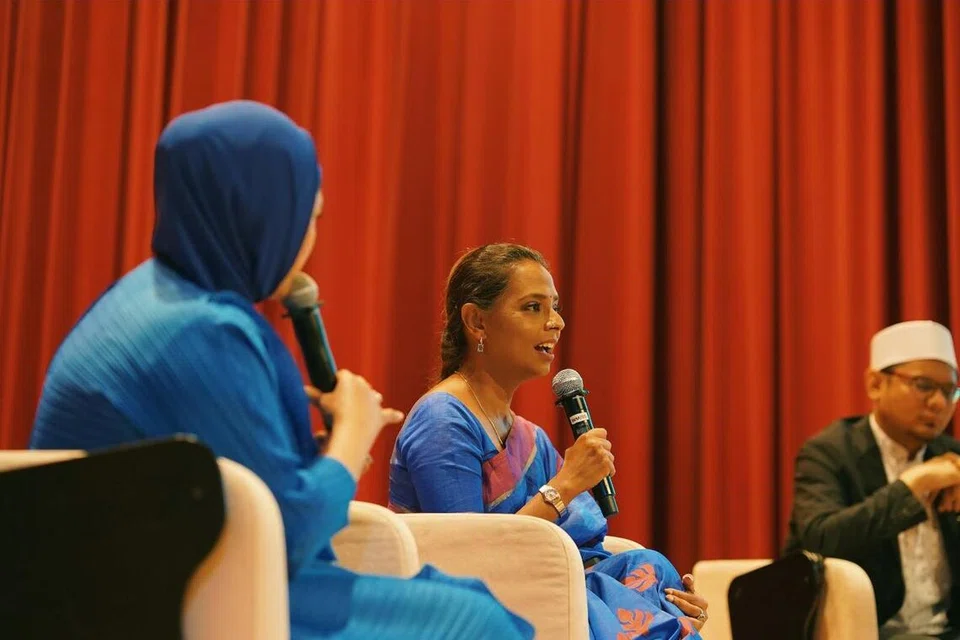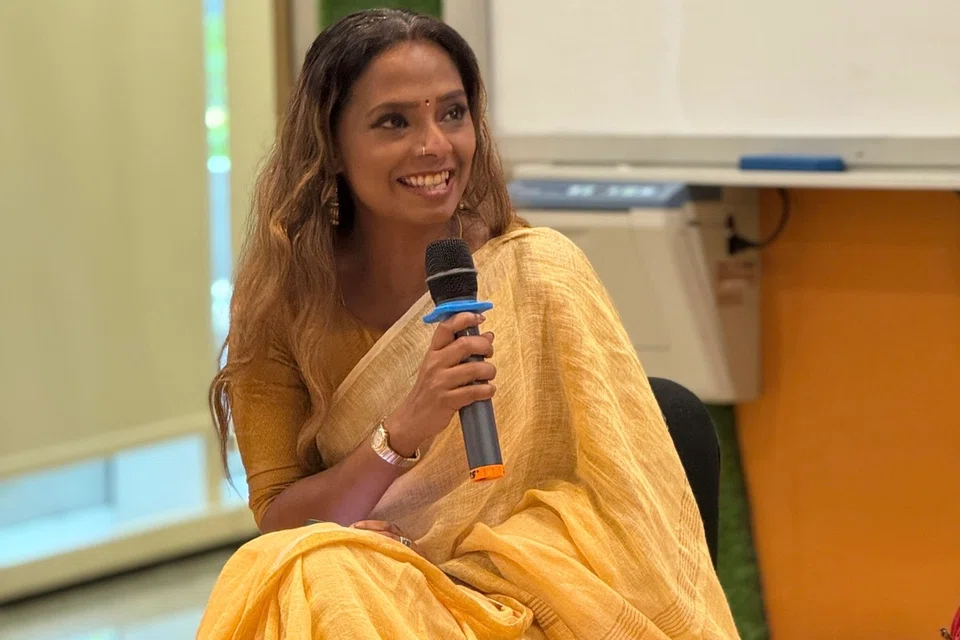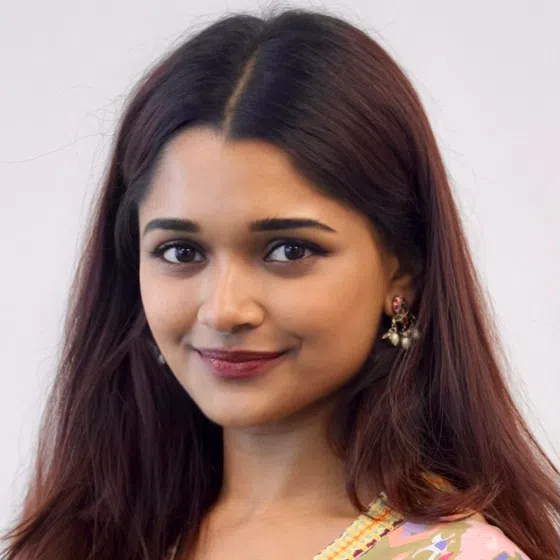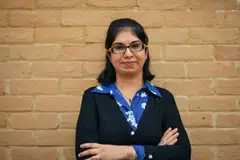In 2001, fresh out of the National University of Singapore and armed with a dual degree in social work and sociology, Ms Bharathi Manogaran walked into her first job at a public hospital with a S$1,200 paycheck and a caseload that included survivors of sexual assault, victims of family violence, and grieving mothers who had just lost their children. It was a baptism by fire, and she never looked back.
Now she sits as the deputy executive director of AWARE, an advocacy organisation working to end violence against women, including sexual and domestic violence, in Singapore.
“It was 24 years ago. Of course, the National Council of Social Service’s guidelines have jumped leaps and bounds since. But back then, it was just enough for a single person,” Ms Bharathi said.
Money, though, was never the deciding factor. Her parents, like any other, were concerned about whether a job in “social service” was sustainable.
While many enter the field with a sense of calling, Ms Bharathi was honest that her path was chosen through a combination of introspection and pragmatism. “I took the MBTI (Myers-Briggs personality test) when I was 16,” she recalled. “It said I should be a counsellor, a teacher, something people-oriented. I knew I needed human interaction.”
Her first posting was at Singapore General Hospital. Within weeks, she was working on family violence and sexual assault trauma cases. She worked with women who were dealing with stillbirths, abortions, and survived unimaginable violence. “That was my first exposure to real-life cases,” she said.
“I used to get very affected. It was jarring to hear such stories, to sit across from someone who’s just been assaulted. You hold space, you stay calm, but after, you start carrying it with you,” Ms Bharathi noted. Decompression came in the form of a supportive team and a then-boyfriend, now husband. “After a session, we’d (she and her co-workers) just go into the other room and cry, or vent or sit in silence.”
After seven years in her first hospital role, burnout hit. Recognising the signs early, she realised a break was due. She went to do her masters in Australia and returned to Singapore re-energised, but work still didn’t get easier. She went on to serve in child and adolescent mental health at the Institute of Mental Health, conduct school counselling, work in family violence specialist centres, and even do a brief stint in policy.
Across two decades, her work has spanned grief counselling, trauma therapy, systems navigation, and public education. And she’s not afraid to confront hard truths about the field or about Singapore’s progress in protecting vulnerable people, particularly women. “I think we’ve come a long way,” she said. “We now understand that violence isn’t just physical. The law recognises coercive control. POHA (Protection from Harassment Act) has been a huge step forward. But we can always do better.”
Commenting on what could be improved, Ms Bharathi said that Singapore still lacks ‘bystander empathy’. “We may see something unfolding in front of us, but then we have so many considerations, restraints, like should we intervene, or is it appropriate to intervene? I just wish as a society, we could have that kampung spirit again,” she said.
One of her personal crusades is to empower Indian women by creating a space akin to AWARE, but with a focused lens on the struggles of Indian women in Singapore. “There’s a need for an AWARE equivalent focused on Indian women,” she said. “There’s a lot of misogyny, patriarchy, and even internalised oppression that needs to be addressed.”

It’s a mission grounded in understanding the unique cultural pressures she believes Indian women face. This isn’t just an issue with men, she pointed out. “It’s about women, too. It’s about dismantling the expectations that women hold for each other.”
She hopes that these conversations will lead to real policy changes, but they also reflect a deeper philosophical shift she’s trying to cultivate in Singapore. “Gender equality isn’t just for women,” she said. “It’s for everyone. The work we’re doing isn’t about being anti-men. It’s about recognising that equality benefits everyone.”
To cope with the heaviness of everyday life, there’s something in Ms Bharathi’s life that offers an unexpected juxtaposition. “I love dancing,” she said, giggling. She cited dance as her respite from the long hours at work. “It’s my oxytocin. I just forget everything and lose myself in the rhythm,” she said. She initially took up dance as a hobby but paused for a while. “I restarted about eight years ago when my oldest child began taking classes,” she shared.
Family remains central to her life. With children aged 16, 13 and 10, Ms Bharathi cherishes their family time on weekends. “Sundays are sacred – we make it a point to go out together. I especially treasure our mealtimes, where we talk openly about everything, we nurture openness.”
Beyond AWARE, Ms Bharathi also chairs Mental Act and works with Kryaid, a group providing education to children from trauma backgrounds in countries like India, Cambodia, and Nepal, curating programmes to create safe emotional spaces for these children.



